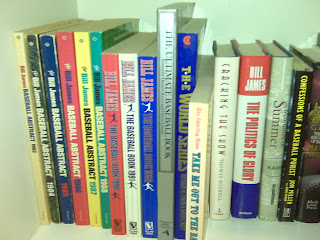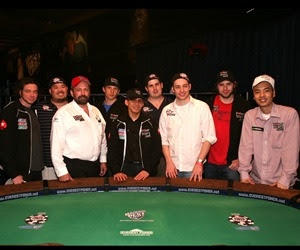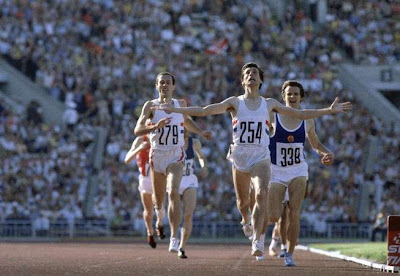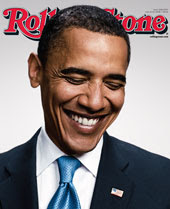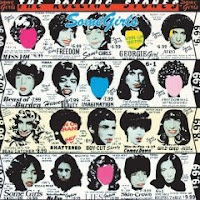I picked this up from
Tosy and Cosh, who cribbed it from The Onion's
A.V. Club Blog.
The concept is simple enough - pick your favorite album from each of the years you've been alive. The execution, however, is very difficult. Some years are obvious, and some years are hard beyond belief.
I'm bending the rules a bit - I was born in 1960, but there really were no albums released during the period 1960-63 that are a treasured part of my collection. I have a ton of music from that era, but it is all in the form of Greatest Hits collections. So, beginning with 1964:
1964 -
A Hard Day's Night, The Beatles. This is the album where they really began to expand their musical horizons.
1965 -
Rubber Soul, The Beatles. My favorite Beatles album.
1966 -
Blonde on Blonde, Bob Dylan. An epic masterpiece.
1967 -
Sgt. Pepper's Lonely Heart's Club Band, The Beatles. The strength of The Beatles was such that the album I think is their most overrated is still the best album that I own from 1967.
1968 -
Beggars Banquet, The Rolling Stones.
1969 -
Abbey Road, The Beatles.
1970 -
Cosmo's Factory, Creedence Clearwater Revival. Got this one for my birthday, when I was in the sixth grade (a couple of years after it was released).
1971 -
Who's Next, The Who. Allowed back in my pantheon after years of exile, when I refused to listen to it because of the guy on my dorm floor who played it endlessly for an entire school year. Eventually, the greatness of the record reasserted itself.
1972 -
Exile On Main Street, The Rolling Stones. The greatest album of the rock era.
1973 -
Goodbye Yellow Brick Road, Elton John. Difficult as it may be to believe now, Elton was on fire for a four year period during the early 1970s.
1974 -
Pretzel Logic, Steely Dan. As close to perfect as an album can get, in terms of how well the songs
fit together.
1975 -
Born to Run, Bruce Springsteen. Surprise!
1976 -
Songs in the Key of Life, Stevie Wonder. The high point of a six-year stretch of sustained brilliance.
1977 -
Rumours, Fleetwood Mac. Punk was garnering most of the headlines, but the Mac proved that there was life yet in the L.A. pop scene.
1978 -
Darkness on the Edge of Town, Bruce Springsteen.
1979 -
Rust Never Sleeps, Neil Young & Crazy Horse. You know that Young has been around for a while when you consider that he's written songs about Kent State, Johnny Rotten, Kurt Cobain, and Iraq.
1980 -
London Calling, The Clash. The high-water mark of the punk era.
1981 -
Wild Gift, X. Los Angeles wasn't all about pop and cocaine, as this scruffy band of punks proved.
1982 -
Avalon, Roxy Music. Perhaps the most gorgeous pop album of the rock era.
1983 -
Speaking in Tongues, Talking Heads. Probably not their best album, but a great one nonetheless.
1984 -
Born in the USA, Bruce Springsteen.
1985 -
Hard Line, The Blasters. In a just world, The Blasters would be getting ready to enter the Hall of Fame. Alas, we live in this one.
1986 -
Graceland, Paul Simon. Yes, it was hyped to the gills. Yes, it deserved the hype.
1987 -
Tunnel of Love, Bruce Springsteen. A different kind of darkness, from the other edge of town.
1988 -
Volume One, Traveling Wilburys. Sure, light as a feather. Still great. Legends have a way of being able to pull that kind of thing off.
1989 -
Freedom, Neil Young - Were it not for another album a little further on down the list, this could rightly be called the greatest comeback album of all time.
1990 -
Interiors, Rosanne Cash.
1991 -
Nevermind, Nirvana. Sounds as fresh today as it did on the day it was released.
1992 -
Automatic for the People, R.E.M.
1993 -
Exile in Guyville, Liz Phair.
1994 -
MTV Unplugged in New York, Nirvana. One night of miracles before everything began to unravel.
1995 -
The Ghost of Tom Joad, Bruce Springsteen. I'm probably one of the few who values this one as much as
Nebraska. Beautiful and heartbreaking.
1996 -
Gone Again, Patti Smith. Meditations on death and redemption.
1997 -
Time Out of Mind, Bob Dylan. The greatest comeback album of all time.
1998 -
Car Wheels on a Gravel Road, Lucinda Williams.
1999 -
Play, Moby. There may not be an album in all of rock's history that can match this one for sustained brilliance in so many different genres.
2000 -
Stories from the City, Stories from the Sea, P.J. Harvey. Magnificent.
2001 -
Love and Theft, Bob Dylan. The comeback continues; the band begins to stretch out.
2002 -
1000 Kisses, Patty Griffin. As perfect a combination of songs, singer, and production as has ever been recorded.
2003 -
American IV - The Man Comes Around, Johnny Cash. Meditations on death, dying, and standing at the gates prepared for whatever might come next.
2004 -
The Ride, Los Lobos.
2005 -
Get Behind Me Satan, The White Stripes.
2006 -
Modern Times, Bob Dylan. There's not much he could do that would surprise me at this point, except to make a bad album. Heaven knows that he's gone through that cycle before.
2007 -
Magic, Bruce Springsteen.
And there you have it. In many of those years, up to 7 albums could have fit the bill, but that will have to wait for when I get around to writing about my top ten albums for every year since I've been born.

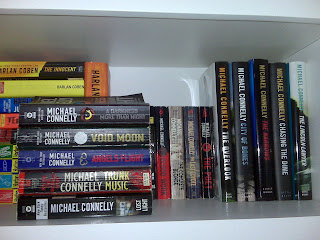

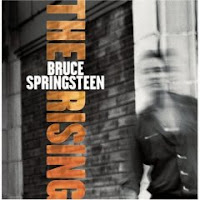 It took a while to take hold, but one of the biggest impacts of the evolution from vinyl records to compact discs was that it expanded the potential length of an album. Once upon a time, 40 minutes was viewed as the "perfect" length for a single album, although a number of classic albums were closer to the 30-minute mark (and for the Ramones and a handful of others, below that).
It took a while to take hold, but one of the biggest impacts of the evolution from vinyl records to compact discs was that it expanded the potential length of an album. Once upon a time, 40 minutes was viewed as the "perfect" length for a single album, although a number of classic albums were closer to the 30-minute mark (and for the Ramones and a handful of others, below that).

